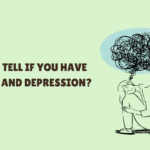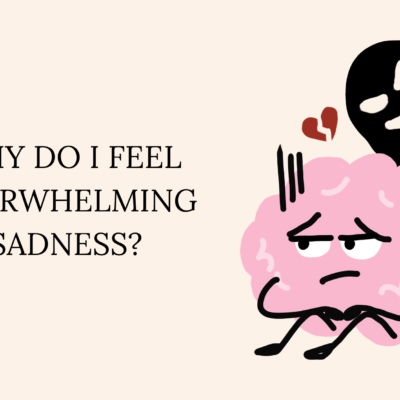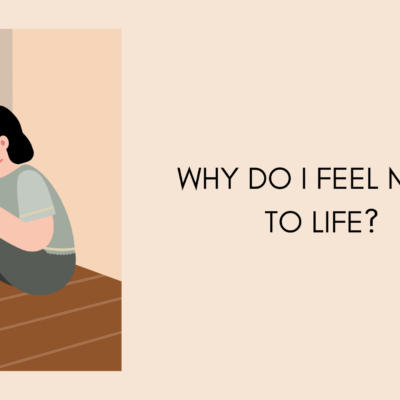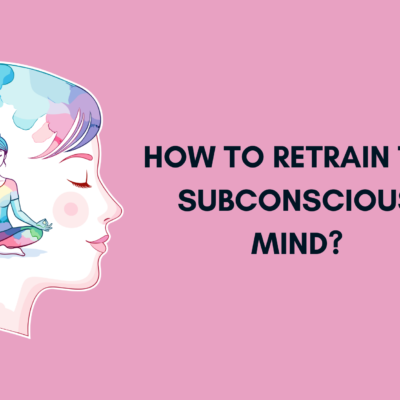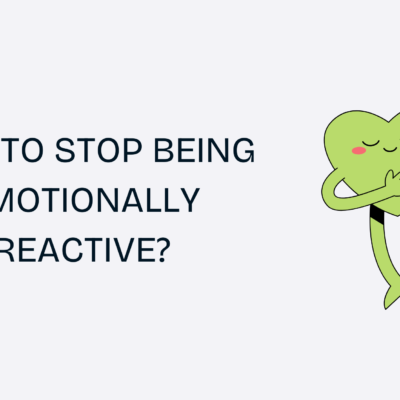Why Do i Feel So Numb Inside: Emotions are a vital part of being human. They color our lives with joy, sorrow, excitement, fear, love, and hope. But sometimes, instead of feeling deeply, we feel nothing at all. We may describe ourselves as “numb inside”—unable to connect with our emotions or even with the people and world around us.
This emotional numbness can be unsettling, confusing, and even frightening. You might find yourself asking: Why don’t I feel anything anymore? What’s wrong with me? The truth is, emotional numbness is more common than many realize, and it often points to deeper issues that deserve gentle attention and care.
In this article, we’ll explore the nature of emotional numbness, its possible causes, its impact on daily life, and practical steps you can take to reconnect with your feelings and yourself.
Also Read:
1. What Is Emotional Numbness?
Emotional numbness is a state in which you feel detached from your emotions, your environment, or even your own sense of self. It’s not the same as peace or calmness. Instead, it feels like a kind of emptiness, a lack of response, or being on “autopilot.”
You might notice:
- A lack of excitement about things you once enjoyed.
- Difficulty crying or expressing sadness.
- An inability to feel joy, even in happy moments.
- Disconnection from loved ones.
- Going through life mechanically, without deep emotional engagement.
It’s as though a “protective barrier” has been built between you and your feelings. While this barrier may serve a purpose in certain circumstances, staying numb for too long can lead to feelings of isolation, loneliness, and confusion.
2. Why Do We Become Emotionally Numb?
Emotional numbness doesn’t happen without reason. It’s often the body’s or mind’s way of coping with stress, trauma, or overwhelming experiences. Let’s look at some common causes:
a) Emotional Overload
When emotions become too intense or overwhelming—whether due to grief, heartbreak, or constant stress—the brain sometimes “shuts down” to protect you from feeling too much at once. It’s a survival mechanism, like pressing pause.
b) Trauma and PTSD
Trauma can have lasting effects on emotional processing. Survivors of abuse, loss, or violence may dissociate or “switch off” emotionally as a defense mechanism. Post-Traumatic Stress Disorder (PTSD) often includes emotional numbness as a symptom.
c) Depression
Depression doesn’t always manifest as sadness. For many, it shows up as emptiness or numbness. People often describe feeling like they’re “just existing” rather than living.
d) Anxiety and Chronic Stress
Prolonged stress floods the body with stress hormones like cortisol. Over time, this can dull emotional responsiveness, leaving you feeling detached and fatigued.
e) Burnout
Emotional numbness is a common symptom of burnout, especially in those who care for others (healthcare workers, parents, teachers). When energy is drained for too long, the brain may switch into survival mode.
f) Grief
Paradoxically, grief can cause numbness as much as deep sadness. When a loss is too great, the mind may delay processing the full weight of pain by muting emotions temporarily.
g) Medications or Medical Conditions
Certain medications, such as antidepressants, can blunt emotions as a side effect. Neurological conditions, hormonal imbalances, or thyroid disorders can also contribute.
h) Disconnection From Self
Sometimes numbness comes from ignoring or suppressing emotions for too long—perhaps due to cultural, familial, or personal beliefs that feelings are “weak” or “unnecessary.” Over time, you lose touch with what you truly feel.
3. The Hidden Purpose of Numbness
While feeling numb can be distressing, it’s important to understand that it often serves a hidden purpose: protection.
Your brain and body are designed to help you survive overwhelming situations. Just as your body automatically pulls back from a flame, your mind can automatically “pull back” from overwhelming emotions.
In that sense, numbness isn’t a flaw—it’s a signal. It means your mind is trying to shield you. But while helpful in the short term, prolonged numbness prevents you from truly healing, growing, and experiencing the richness of life.
4. The Impact of Feeling Numb
Emotional numbness doesn’t just affect how you feel inside—it impacts nearly every area of life:
- Relationships: Loved ones may feel you’re distant, cold, or uninterested.
- Work/School: Lack of motivation or inspiration may lead to decreased performance.
- Self-identity: You may feel lost, disconnected, or unsure of who you really are.
- Physical health: Stress-related numbness can lead to fatigue, sleep problems, and weakened immunity.
- Spiritual life: You may feel disconnected from God, prayer, or a sense of meaning.
Left unaddressed, numbness can spiral into deeper mental health struggles, creating a cycle of detachment and self-doubt.
5. Signs It’s Time to Seek Help
While occasional numbness may pass on its own, chronic emotional detachment deserves attention. You may benefit from professional support if you notice:
- Numbness lasting weeks or months.
- Difficulty maintaining relationships.
- Loss of interest in nearly everything.
- Accompanying symptoms of depression or anxiety.
- Self-destructive behaviors (substance use, isolation).
- Thoughts of hopelessness or self-harm.
Therapists, counselors, and support groups can provide tools to process underlying causes and reconnect with your emotions safely.
6. Practical Steps to Reconnect With Your Emotions
Reclaiming your emotional life takes patience, compassion, and intentional effort. Here are some practical steps to begin:
a) Acknowledge, Don’t Judge
The first step is to recognize your numbness without shame. Remind yourself: This isn’t weakness. It’s my body’s way of coping. Accepting where you are creates space for healing.
b) Create Safe Space for Feelings
Set aside quiet moments to reflect or journal. Ask yourself simple questions: What did I feel today? Even small sparks—boredom, irritation, relief—matter. Naming emotions is the beginning of feeling them.
c) Engage Your Body
Physical activity can reconnect you with your emotions. Exercise, yoga, or even a walk in nature can awaken sensations in the body, which often precedes emotional release.
d) Practice Mindfulness
Mindfulness invites you to notice your inner world without judgment. Even if you feel “nothing,” simply observing your breath or sensations helps reawaken awareness.
e) Connect With Creativity
Art, music, or writing can bypass intellectual barriers and allow buried emotions to surface naturally. Creativity often expresses what words cannot.
f) Allow Safe Vulnerability
Share with a trusted friend, family member, or therapist. Speaking aloud what you feel—or don’t feel—creates connection and helps dissolve isolation.
g) Revisit Joy Gradually
Even if joy feels out of reach, start small. Try activities you once enjoyed, even if they feel flat at first. With time, repetition can reignite pleasure pathways.
h) Limit Emotional Numbing Behaviors
Substances, excessive screen time, or overworking may temporarily distract you but deepen disconnection long-term. Notice these patterns and gently replace them with healthier outlets.
i) Reconnect Spiritually
For many, numbness includes spiritual disconnection. Prayer, meditation, or reading sacred texts—even without “feeling it”—can reopen pathways to meaning and peace.
7. The Role of Patience and Compassion
Healing from numbness is not about forcing yourself to feel instantly. It’s about creating the right conditions for emotions to naturally return. Think of it like thawing frozen ground: the warmth of compassion, patience, and gentleness gradually melts the ice.
Don’t pressure yourself with thoughts like, I should feel happy or Why can’t I cry? Instead, affirm: I am giving myself space. My emotions will return when they are ready.
8. When Faith Meets Numbness
For those who believe in God, numbness can feel especially confusing. You may wonder why your prayers feel empty or why worship no longer stirs your heart. Remember: even spiritual heroes experienced seasons of dryness. King David often cried out, “Why, Lord, do you stand far off?” (Psalm 10:1).
During these times, faith isn’t about feeling God—it’s about trusting that He is present even when emotions are silent. Keep showing up in prayer, even with honesty: God, I feel numb, but I’m here. Such prayers are often the most authentic.
9. Moving Forward: From Numbness to Wholeness
Emotional numbness may feel permanent, but it isn’t. With self-awareness, support, and time, most people gradually reconnect with their feelings. The journey often looks like this:
- Recognition: Admitting you feel numb.
- Understanding: Exploring possible causes with curiosity.
- Compassion: Offering yourself patience instead of judgment.
- Practice: Taking daily steps to reconnect with body, mind, and soul.
- Support: Leaning on trusted people or professionals for help.
- Renewal: Gradually rediscovering joy, sorrow, and the full spectrum of emotions.
Numbness doesn’t mean you are broken. It means your system has been overwhelmed. With care, the ice will thaw, and the warmth of emotion will return.
10. Final Reflection
So, why do you feel so numb inside? Because your mind and body are protecting you from something too heavy to bear all at once. Numbness is not the end—it’s a pause, a sign that healing is needed.
The key is not to shame yourself but to gently invite life back in—through small acts of awareness, movement, connection, and trust. Over time, the fog lifts, and emotions, both joyful and painful, begin to flow again.
To feel is to be human. If you are numb now, take heart: your emotions are not lost, only waiting. With patience, compassion, and courage, you will feel again.


